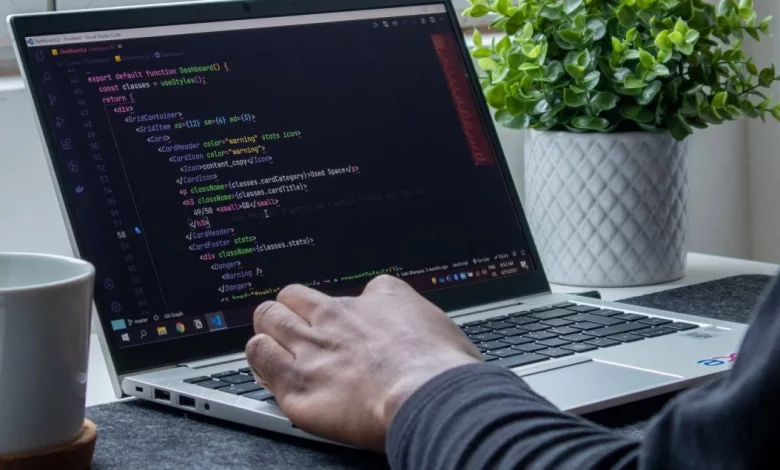Is PHP a Front-End or a Back-End Language?

PHP, Hypertext Preprocessor, is a widely used scripting language in web development. However, there is often confusion about its role: Is PHP a frontend or a backend language? In this article, we will delve into the intricacies of PHP and explore its place in modern web development.
Understanding PHP
PHP Overview
PHP is a server-side scripting language originally designed for web development. It is embedded into HTML to create dynamic web pages, and it interacts with databases to handle user data. PHP is known for its ease of use and versatility, making it a popular choice for many developers.
PHP in Web Development
When it comes to web development, PHP plays a crucial role in creating dynamic and interactive websites. It helps in generating content on the server-side and sends the rendered HTML to the client’s browser.
PHP as a Backend Language
Server-Side Scripting
PHP is primarily used on the server-side to perform various tasks that are not possible with frontend technologies alone. It manages server resources, handles file uploads, and processes data submitted through forms, ensuring a seamless user experience.
Interaction with Databases
PHP’s ability to interact with databases is one of its core strengths. It can execute SQL queries, retrieve data, and store information in databases, allowing developers to build robust and data-driven applications.
Handling User Authentication
User authentication and authorization are essential components of any web application. PHP provides the tools to manage user sessions, passwords, and access levels, ensuring secure access to specific features.
PHP and Frontend Development
PHP in Templating
PHP can be used for frontend development by integrating it into HTML templates. It enables developers to create reusable components, such as headers and footers, and dynamically fill them with content.
Integrating PHP with HTML and CSS
PHP can work seamlessly with HTML and CSS, allowing developers to build dynamic web pages without the need for extensive JavaScript knowledge. This integration streamlines the development process and enhances performance.
Deciding PHP’s Role in a Project
Factors to Consider
When deciding whether PHP should be the backend or frontend language for a project, several factors come into play, such as the project’s requirements, team expertise, and scalability needs.
Backend or Frontend: Which to Choose?
Ultimately, the decision depends on the complexity of the project and the specific functionalities required. In some cases, PHP can handle both backend and frontend tasks effectively.
That said, PHP is a server-side scripting language that is primarily used for back-end development. This means that it is used to handle tasks on the server, such as processing user input, connecting to databases, and generating dynamic content.
While PHP can be used on the front-end as well, it is not as common. The primary languages for front-end development are HTML, CSS, and JavaScript. These languages are responsible for the structure, design, and interactivity of a website. They work together to create the user interface, the part of the site that you interact with.
Promoted contents:
PHP is more popular on the back-end because it is excellent at handling complex tasks on the server. It also easily integrates with databases like MySQL, which makes it perfect for building dynamic web applications. PHP can also communicate with other server-side languages, making it a versatile choice for back-end development.
Here is a quick recap of the key points:
- PHP is primarily a back-end language.
- Front-end languages are HTML, CSS, and JavaScript.
- PHP excels in complex tasks, like database interactions and data processing.
- It is important to understand the distinction between front-end and back-end development.
- When learning PHP, it is important to focus on its strengths as a back-end language.
Common Misconceptions about PHP
Outdated Language
One misconception about PHP is that it is an outdated language with limited capabilities. However, with the introduction of PHP 8, the language has seen significant improvements and performance optimizations.
Security Concerns
Another misconception revolves around PHP’s security. While any programming language can be vulnerable if not used correctly, PHP has a dedicated community that regularly updates the language to address security issues promptly.
The PHP Ecosystem
Popular PHP Frameworks
PHP has a vibrant ecosystem of frameworks, such as Laravel, Symfony, and CodeIgniter. These frameworks simplify development tasks, encourage best practices, and enhance overall project efficiency.
PHP Package Managers
PHP has package managers like Composer, which allow developers to manage dependencies and integrate external libraries seamlessly.
Future of PHP
PHP 8 Features
PHP 8 introduced many features, including JIT (Just-In-Time) compilation, union types, and improvements in error handling. These advancements have solidified PHP’s position as a modern and capable language.
Community Support
The PHP community is active and constantly evolving, contributing to the language’s growth and adapting to the latest trends in web development.
Conclusion
In conclusion, PHP is a powerful and versatile scripting language primarily used for backend development, but it also plays a role in frontend development through templating. It is a valuable tool for creating dynamic and data-driven websites, and with PHP 8’s advancements, it remains a relevant choice for modern web development projects.
FAQs
- Q: Is PHP suitable for large-scale applications?
- A: Yes, PHP can handle large-scale applications with proper architecture and optimization.
- Q: Can PHP be used for mobile app development?
- A: While PHP is primarily designed for web development, it can be used for backend services in mobile apps.
- Q: Does PHP support object-oriented programming?
- A: Yes, PHP supports object-oriented programming, allowing developers to create modular and reusable code.
- Q: Is PHP compatible with different operating systems?
- Q: Can I integrate PHP with other programming languages?
- A: PHP can interact with other languages through various methods, such as using RESTful APIs or calling system commands.
Some Resources for Getting Started with PHP
If you’re looking to get started with PHP, here are some helpful resources to begin your learning journey:
- PHP Official Website: The official PHP website provides extensive documentation, tutorials, and a wealth of resources for beginners. You can find it at https://www.php.net/.
- W3Schools PHP Tutorial: W3Schools offers a beginner-friendly PHP tutorial that covers the basics, syntax, and various concepts. You can access it at https://www.w3schools.com/php/.
- PHP.net Getting Started Guide: PHP.net provides a dedicated “Getting Started” guide that covers the essential aspects of PHP programming. You can find it at https://www.php.net/manual/en/getting-started.php.
- PHP: The Right Way: This website offers a comprehensive guide to best practices in PHP development. It covers topics such as coding standards, security, and more. You can visit it at https://phptherightway.com/.
- Laracasts PHP Lessons: Laracasts is known for its high-quality programming tutorials. While it primarily focuses on Laravel (a PHP framework), its PHP lessons cover fundamental concepts and are helpful for beginners. You can check it out at https://laracasts.com/series/php-for-beginners.
- Codecademy PHP Course: Codecademy offers an interactive PHP course that allows you to practice coding directly in your browser. You can find it at https://www.codecademy.com/learn/learn-php.
- PHP Reddit Community: The PHP subreddit (r/PHP) is an active community where developers discuss PHP-related topics, share resources, and ask questions. It’s a great place to seek advice and learn from experienced PHP developers. You can visit it at https://www.reddit.com/r/PHP/.
- PHP YouTube Tutorials: YouTube has a vast collection of PHP tutorials, ranging from beginner to advanced levels. You can search for specific topics or channels that cater to PHP beginners.
Remember, practice is key to mastering PHP. Start with small projects, experiment with code, and don’t hesitate to ask questions in communities when you need help. Happy coding!

![$.post(url [, data ] [, success ] [, dataType ])](/wp-content/uploads/2023/03/myviptuto_thumb_4581-220x150.jpg)






